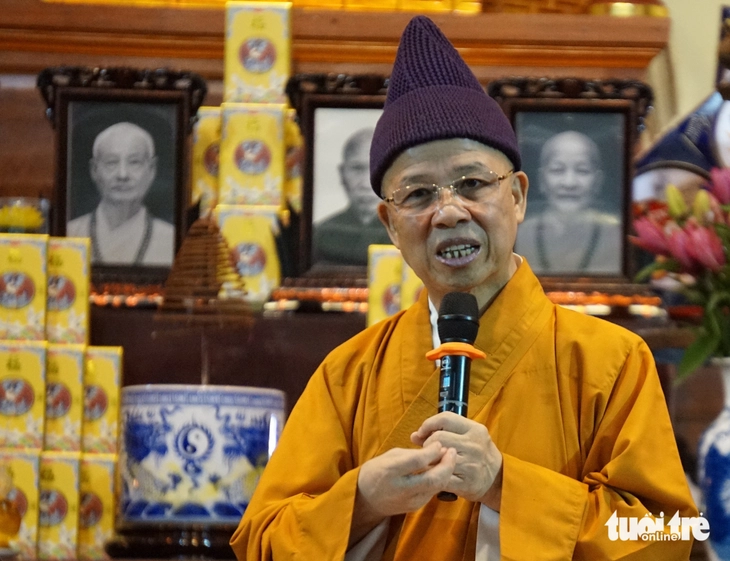
Venerable Thich Thanh Quyet asked whether building big temples and big statues is a waste - Photo: T.DIEU
Venerable Thich Thanh Quyet asked the question, "Is it wasteful for monks to build big temples, large statues, and use modern means?", and gave the answer at the conference on Buddhism with the culture of thrift and anti-waste held on the evening of August 21.
The Vietnam Buddhist Academy in Hanoi organized a seminar on Buddhism with the culture of thrift, anti-waste , academic exchange, and sharing of practical experiences between monks and nuns of all grades, helping them to better understand this issue to spread and apply it in the propagation of Dharma at the monasteries.
The workshop discussed issues such as: Identifying thrift, fighting waste and Buddhist scriptures on thrift and fighting waste; Truc Lam Buddhism, the pinnacle of the spirit of thrift and fighting waste; Wasting monks' talents, wasting faith...
No monk uses his wealth to build a temple , that money belongs to the people.
At the conference, monk Thich Minh Tu (class HV4) stated: Even though the temple is big, the statues are big, and the facilities are modern, when used with a pure heart in the spirit of Buddhism and managed transparently, it is a way to sow wisdom and blessings for the present and the future.
After this statement, Venerable Thich Thanh Quyet - President of the Vietnam Buddhist Academy in Hanoi, chaired the conference and gave his analysis.
The monk said that in reality, it is not only now that large pagodas are being built. When King Ly Thai To moved the capital to Thang Long, he ordered the construction of 18 large pagodas.
"Building a big temple is not for any individual but for the whole people. Each ancient temple is a place of education , of goodness, and of upward orientation for the masses.
So if you have the means, you can build a big temple, just don't beg too much to build it. Don't take advantage of a big temple to do illegal things or do immoral things.
Because that temple is the people's temple, the finances also belong to the people. No monk brings his wealth to build the temple, mainly due to the prestige of each person, each temple, Buddhists contribute and make offerings to build big temples, big statues," monk Thich Thanh Quyet analyzed.
He concluded that we should not be bound by the idea that "big temples are wasteful, small temples are economical". A small temple that is not used properly is also wasteful.
Also do not be concerned about driving a car, using a phone is wasteful, walking, not using a phone is economical. Because walking, not using a phone is sometimes more wasteful. It is a waste of time, and a waste of many other opportunities, a waste of human inventive intelligence.
Venerable Thich Thanh Quyet advised monks and nuns to apply the technological achievements of mankind to their study and practice life, but not to compete with fashion and new means.
"Spending 1 billion VND on the right place is not a waste, but spending 1 VND on the wrong purpose is also a waste," he concluded.
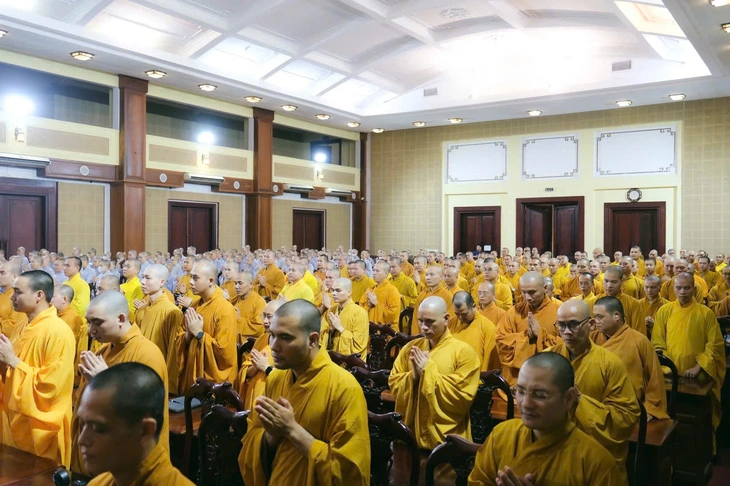
The seminar was attended by hundreds of monks and nuns from the Vietnam Buddhist Academy in Hanoi - Photo: Organizing Committee
A mind not attached to material things will be easier to practice.
Talking about the spirit of thrift and anti-waste in Buddhism, Venerable Thich Giac Hop (Vietnam Buddhist Academy in Hanoi) said that the Buddhist thought of "thieu duc tri tuc" - living with enough, knowing when to stop - is the core foundation for practicing thrift.
The Buddha pointed out that the origin of suffering is greed and desire without end. Therefore, monks and true Buddhists must cultivate a mind free from greed and reduce desires.
Saving is to practice compassion and wisdom. A mind that is not bound by material things will easily practice and attain liberation. On the contrary, wasting damages one's own merits and harms the environment and the community.
Saving in Buddhism does not mean being stingy, miserly or living a life of negative austerity.
On the contrary, it is an attitude of being mindful and responsible. It is respecting every grain of rice, every drop of water, every piece of paper, because all are the results of labor, the efforts of the donors.
Along with saving is the action of fighting waste. Not only fighting waste of useless material consumption, but also fighting waste of time, effort, intelligence, and even opportunities to do useful things.
Show filial piety to parents while they are still alive
Applying the spirit of thrift during this Vu Lan season, monk Thich Thanh Quyet said that when showing filial piety to parents with delicious food or good things, we should show filial piety while they are still alive.
When parents have passed away, the best way to show filial piety is to do many good deeds, not to waste it by offering lavish feasts and burning votive paper money.
He advised monks and nuns to practice thrift after graduation and educate people and Buddhists about the spirit of thrift.
Source: https://tuoitre.vn/nha-su-xay-chua-to-tuong-lon-co-lang-phi-khong-20250821082020296.htm


![[Photo] High-ranking delegation of the Russian State Duma visits President Ho Chi Minh's Mausoleum](https://vphoto.vietnam.vn/thumb/1200x675/vietnam/resource/IMAGE/2025/9/28/c6dfd505d79b460a93752e48882e8f7e)

![[Photo] The 4th meeting of the Inter-Parliamentary Cooperation Committee between the National Assembly of Vietnam and the State Duma of Russia](https://vphoto.vietnam.vn/thumb/1200x675/vietnam/resource/IMAGE/2025/9/28/9f9e84a38675449aa9c08b391e153183)
![[Photo] Joy on the new Phong Chau bridge](https://vphoto.vietnam.vn/thumb/1200x675/vietnam/resource/IMAGE/2025/9/28/b00322b29c8043fbb8b6844fdd6c78ea)




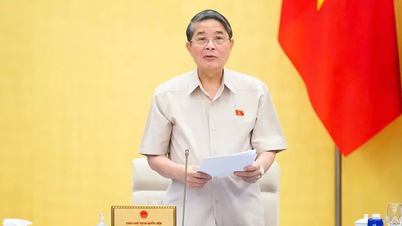

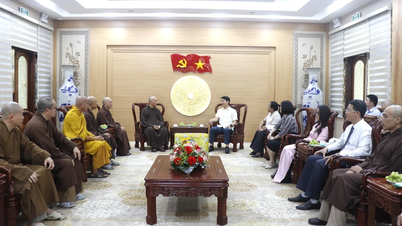











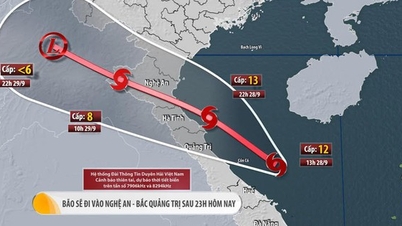

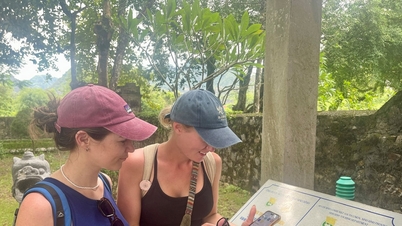
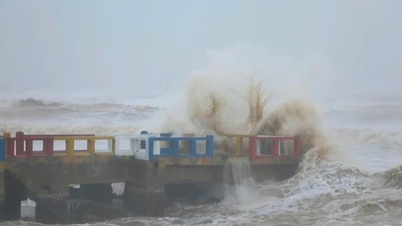





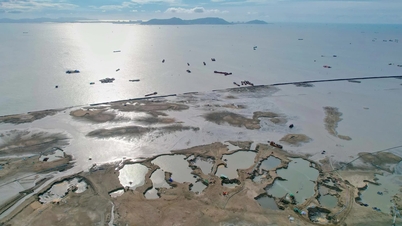

























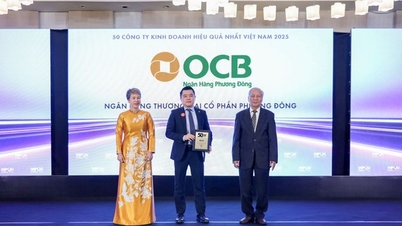


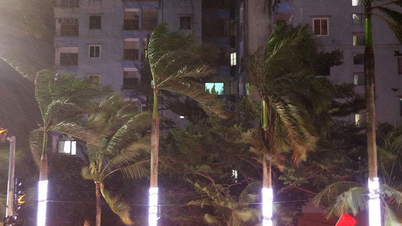




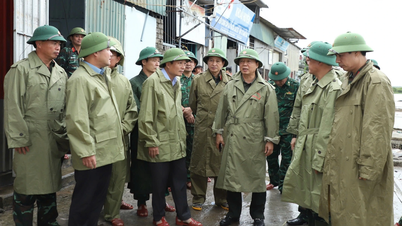








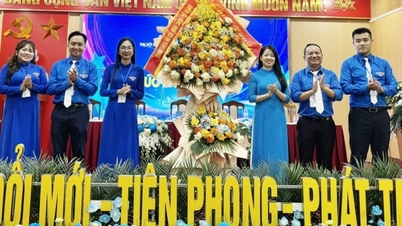
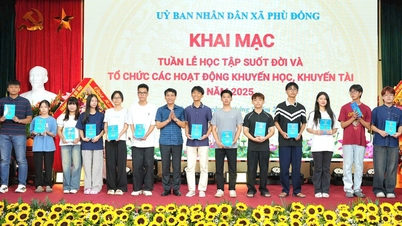
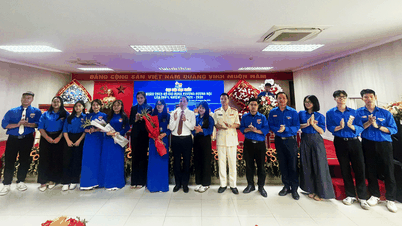
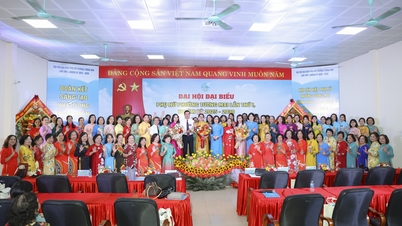














Comment (0)